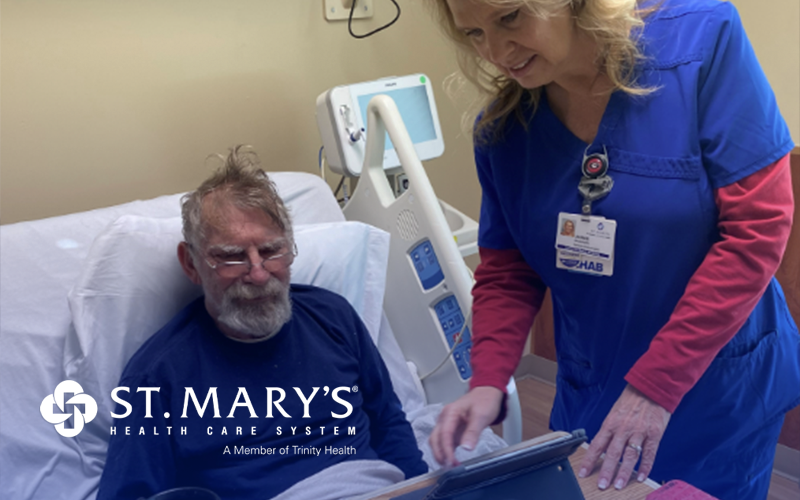What is a speech-language pathologist (SLP)?
May 15, 2024
By: Bansari R. Shah
Categories: Heart Health
Speech-Language therapy is vital for many patients recovering from a stroke.
Continuing our Stroke Month theme, Speech-Language therapy is vital for many patients recovering from a stroke. From treating problems with swallowing to improving the patient’s ability to understand and produce speech, Speech-Language Pathologists are key components of post-stroke care.
As the basis of our world, communication helps us connect with others and the world around us. For some, however, communication and speech do not come easily. A speech-language pathologist evaluates and treats speech, language, fluency, voice, communication, feeding, and swallowing disorders. Speech-language pathology is also known as speech-language therapy.
What is speech-language therapy?
Speech-language therapy is a treatment that can help enhance your ability to communicate and use language skills. A speech-language pathologist is trained to help you improve impediments to your speech, such as voice disorders, stutters, language comprehension, and more. Their expertise plays a crucial role in facilitating your communication breakthrough.
Who could benefit from speech therapy?
According to the Cleveland Clinic, a speech impediment can happen when your mouth, jaw, tongue, and vocal tract don’t work together to produce speech. This can occur due to developmental or neurological disorders. Both adults and children can be diagnosed with a speech impediment.
People with the following diagnoses can benefit from speech therapy:
- Receptive and expressive language disorders
- Autism
- Articulation disorders
- Phonological disorders
- Apraxia of speech
- Fluency disorders
- Voice disorders
- Stroke survivors
- Those with reading impairments
- Swallowing disorders in infants and adults
Signs and symptoms that you or a loved one might need speech-language therapy
Here are some signs of common speech disorders:
Apraxia
- Neurological disorder disrupts the communication between the brain and its muscles. As a result, the person cannot speak clearly.
- Symptoms of apraxia: delayed speech and language skills in children, difficulty in transitioning from words
Dysarthria
- Facial musical weakness
- Consonants and vowels are distorted
- Does not resolve with normal childhood development
Aphasia
- Cannot process speech properly or deliver it clearly
- Can occur in those who have suffered from a traumatic brain injury
Swallowing disorders
- Symptoms of swallowing disorders: hoarseness of voice, drooling, pain when swallowing, acid reflux and heartburn
Talk to your doctor about your concerns and to determine if a speech therapy referral is warranted.
Additional resources:
- Signs of a speech-language disorder, Identify The Signs of Communication Disorders
- The American Speech-Language-Hearing Association (ASHA) has compiled a list of developmental milestones to help parents be informed of what to expect with a child’s speech-language development and when to discuss with the child’s doctor any concerns that may arise Communication Milestones: Age Ranges (asha.org). These milestones are intended to promote discussion with a physician to determine if a child requires a referral for speech or audiological services.
- Communication strategies for aphasia, Aphasia Communication Tips - The National Aphasia Association
How St. Mary’s can help if you require speech-language therapy:
St. Mary’s offers pediatric and adult speech therapy services. Our speech therapists specialize in infant feeding, early intervention, apraxia of speech, communication deficits, and swallowing disorders. Please discuss with your doctor if speech therapy is right for you or a member of your family.
St. Mary’s outpatient locations:
- St. Mary’s Outpatient Center, 2470 Daniells Bridge Road, Athens. For more information call (706) 389-2950
- St. Mary’s Good Samaritan Hospital, 5401 Lake Oconee Parkway, Greensboro. For more information call (706) 543-7331
SLP services are available for inpatients at our hospitals, our Center for Rehabilitative Medicine at St. Mary’s Hospital, and our inpatient swing bed program at St. Mary’s Good Samaritan Hospital. We also offer SLP services for qualifying patients through St. Mary’s Home Health Care/Hospice Services.
Please Note: Rehabilitative services require a physician’s referral. Meet with one of our Primary Care Providers to secure your referral.
